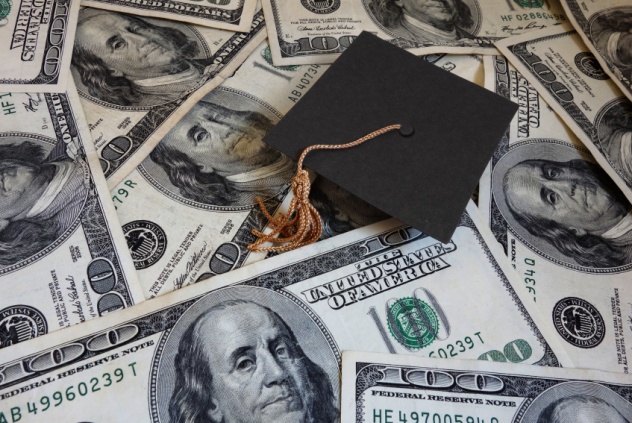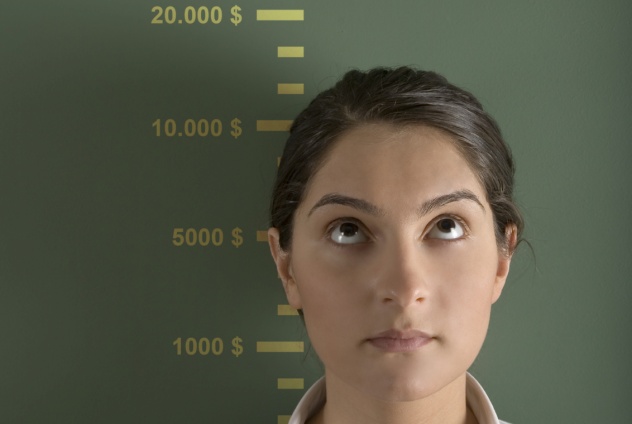Despite being the largest generation in the workforce, and possibly the largest generation overall, millennials are deeply unpopular. They’re also deeply unhappy, deeply in debt, and deeply prone to being talked about in sweeping generalizations. Although they naturally won’t tally with everyone’s specific life experiences, here are 10 broad reasons why being a millennial basically sucks.
10 Everyone Keeps Telling Them Their Lives Suck
Unlike the baby boomers (1946–64), the Silent Generation (1928–45), the Greatest Generation (before 1928), or even Generation X (1965–80), millennials are constantly being told by the media that their lives suck. The media’s totally non-biased reasoning? Millennials’ lives suck because they suck, too. According to the media, millennials are narcissistic, entitled, lacking in entrepreneurial spirit, and will do everything from crashing the economy to ruining the NFL. The serious claims that people seriously make about millennials frequently go beyond parody. One basketball coach made waves recently by blaming his team’s bad season on “Millennial culture“(and not his crappy coaching). Speaking of culture, it’s not just in sports and day-to-day stuff that millennials are considered actively detrimental to the world. Many people, like the writer of this New York Times article, use “millennial” as a synonym for “hipster.” While many millennials are definitely hipsters, just as many would rather gouge their eyes out than spend two seconds in the company of a flannel-wearing douchebag. Yet, their stories are usually sidelined in favor of trashing an entire generation. Media overreaction is not a new thing. Famously, Generation X’s apathy caused journalists to freak out. However, Generation X’s shortcomings were blamed on external factors—satanic rock music, MTV, and drugs. Millennials, on the other hand, are told that their problems come purely from them being millennials.
9 There’s Some Truth To The Criticism
Not all criticism of millennials is unfounded. While the criticisms certainly go overboard, there is scientific evidence that millennials (as a whole) differ from previous generations in some crucial ways. Some of those ways are pretty negative. The worst have to do with materialism and work ethic, often paired under the phrase “entitlement.” Research into millennials who came of age before the financial crash of 2008 found extremely high levels of materialism, coupled with a strong desire to avoid doing hard work. Using data from the Monitoring the Future survey, which has been run annually in high schools across the US since 1976, researchers found that 25 percent of baby boomers admitted that “not wanting to work hard” might prevent them from getting a desired job. For millennials, the number stood at 39 percent. That’s a big leap, and it came with another noticeable shift. Along with Generation X, millennials had levels of materialism that were at historic highs. This lines up with other research which has found that millennials value money, image, and fame more than things like self-acceptance and community, which may explain why millennials also have extremely low levels of civic engagement. A lot of this may be attributable to the double-whammy of advertising and the recession. The authors of one paper noted that those born in times of economic insecurity tend to value material goods more highly. They also pointed out that a huge part of the US economy is currently orientated toward advertising messages, something else that classically raises levels of materialism and entitlement. However, there’s a silver lining to this gloomy cloud: A 2010 study by Pew Research found that millennials were more confident, optimistic, and open to change than any other generation.
8 Millennials Themselves Believe This Criticism
When someone tells you that your generation is wasteful, immature, entitled, and (basically) full of douches, the standard response should be, “No it isn’t.” Most of us tend to speak up for our “tribes,” even if they’re as abstract as a generation or nationality. But millennials are different. Tell them they suck, and they’re likely to agree with you. In a mid-2015 poll, Pew Research asked cohorts from each generation to rate themselves for negative and positive traits. When baby boomers were asked if their generation was self-absorbed and wasteful, only 20 percent said “yes.” Among millennials, that figure jumped to nearly 60 percent. Additionally, 43 percent called their generation “greedy,” and only 36 percent classified themselves as “hardworking.” Even famously apathetic Generation X had over half its cohort describe itself as hard workers. Baby boomers and the Silent Generation, on the other hand, thought extremely highly of themselves. Pew didn’t make any conjectures as to why millennials should value their generation less than others, but they did highlight an interesting related finding: Of the millennials surveyed, 60 percent didn’t consider themselves millennials. In the same way that nobody will admit to being a hipster, perhaps being a millennial is widely seen as shameful.
7 Many Millennials Have Mental Health Problems
No one generation has a monopoly on mental health issues. You can find people from any cohort suffering, from the most stoic Silent to the most sociable millennial. However, there are signs that millennials may be having a noticeably rougher time of it. In 2014, experts began to sound the alarm on what was called a college student mental health crisis. Of course, not all millennials are college students, but all the college students monitored for mental health problems were millennials, which still suggests a generational concern. At the top of the list of issues was anxiety. According to a 2013 study, 57 percent of women and 40 percent of men on college campuses had experienced episodes of “overwhelming anxiety” in the past year. To be clear, this is anxiety as a mental health problem. It is not synonymous with simply being worried, but rather refers to an irrational, all-consuming panic that can severely impact quality of life. Along similar lines, around a third of students also reported feeling so depressed that it was difficult to function. Off campus, things are no less bleak. Millennials have the highest rates of perceived stress of any generation. Their suicide rate is also inching up, despite have previously fallen steadily among young people for more than a decade. At the moment, suicide is the third-leading cause of death among millennials. It’s important to note that these findings may be overstated. Some have theorized that millennials are simply more likely to broadcast their problems than previous generations. Others dispute the statistics. At the very least, there is a perception of mental health problems among the generation that’s proving impossible to shake off.
6 Many Millennials Have Inflated Expectations
When we’re young, most of us form some pretty strong ideas of what to expect from life. For baby boomers, the expectation was years of hard work leading to some sweet rewards. When the strong US economy resulted in them doing even better than they expected, that led to increased happiness. Millennials have the opposite problem. They were raised by their baby boomer parents to believe that they would do even better than they thought they would. The trouble with this is that it leads to massively inflated expectations that couldn’t be fulfilled even in a strong economy. Also, a huge chunk of millennials entered the workforce when the economy was at its worst since the Great Depression. The result was many, many young people not only failing to live up to their expectations, but missing their goals by such a wide margin that they felt like failures. Some of this is the fault of our culture of individuality and self-fulfillment. As the Harvard Business Review pointed out in 2012, the incidence of the phrase “follow your passion” occurring in books and articles skyrocketed just as millennials were coming of age. Around the same time, the phrase “a secure career” fell out of fashion in favor of “a fulfilling career.” Essentially, a large group of millennials grew up believing that they could do anything they wanted, enjoy it, and make a lot of money doing it. More than that, lots of them felt that settling for a decent but uninspiring job was somehow a betrayal of themselves. A lot of them are now crashing up against reality in the worst way possible.
5 They’re Dealing With Insane New Social Issues
Every generation has to deal with its own set of emerging social issues. By anyone’s standards, those facing millennials are particularly unusual. Thanks to a prolonged period of social change, many young people today are finding it harder to fit into life than ever before. One of the most noticeable issues has been the blurring of traditionally “male” and “female” problems. For decades, women have had to put up with unrealistic body shapes being rammed down their throats, while men were largely left alone. Today, equality has been achieved. Unfortunately, that doesn’t mean we’ve stopped making teenage girls hate themselves. We’ve just started making teenage boys hate themselves, too. Male millennials are arguably the first group of men in history to experience deep-seated body image issues. A University of West England study found that men are now more likely than women to develop anxiety about how they look, though very few are willing to admit to it. Instead, the phenomenon manifests in things like catastrophically high levels of steroid abuse as young men chase that “perfect” physique. That’s not to say everything is all light and laughter for millennial women. There are signs that the wage gap between men and women may actually be increasing for the first time in years, even among young, highly educated women. This is important, because educated young women are exactly the cohort we would expect to be riding a wave of equality to the well-remunerated high life. That they’re not is insane. Then there’s online harassment. While many studies show that men get just as much online abuse as women, millennial women are more likely to experience particularly nasty forms, like stalking and sexual abuse, than any other group.
4 They’re Dealing With An Insane New Job Market . . .
Following the financial crash of 2008, the economy has undergone one of its biggest shifts since unions fell out of fashion. From living in a world where you were expected to have only a few jobs in your lifetime, we’ve now entered one where you may have dozens or even hundreds. It’s called the gig economy, and it’s shaky as hell. Instead of having a solid job working at a taxicab firm, people are now more likely to be registered with Uber and get work as it comes. On top of that, they may have a separate gig delivering food on demand from that same car, while renting their spare room on Airbnb. While this lifestyle has the potential to make a lot of money, the lack of personal days, medical insurance, and long-term stability is very scary. To be clear, this way of living works fine for some people. Here at Listverse, most of our writers are freelance, and that suits them just fine. (How many people in the Times‘ newsroom get to write articles in their underpants?) But plenty of others aren’t fine with it, and they don’t have a choice. By some counts, as many as one-third of the US workforce may be part of the low-security, no-benefits gig economy. In Britain, zero-hours contracts, where you only go into work (and get paid) if your employer needs you that day, are sharply on the rise. For young people entering the world of work with no savings, this can lead to an extremely precarious existence. Break a leg playing football or come down with a lingering illness, and you’ll watch your job, money, and prospects go up in smoke.
3 . . . And That’s When They Can Get Jobs At All
The Great Recession technically ended in 2009, although it probably didn’t feel like it. While US unemployment was still around 8 percent in early 2013, it has now fallen back to near pre-crash levels. There are now more jobs, more opportunities, and more money . . . unless you happen to be a millennial. Even as the rest of the US economy kicks back into gear, the young continue to suffer. Amid all the signs of a recovery, youth unemployment remains stubbornly high. In March 2015, the unemployment rate for those 20–24 years old in the US was 10 percent, a 0.2 percent increase from January. By the end of the year, it was hovering around the 9.5 percent mark—certainly an improvement but well below the general population’s 5.1 percent. For certain minorities, things look even bleaker. In 2015, the unemployment rate for African Americans aged 20–24 was 18.9 percent. For those aged 16–19, it was a staggering 29.6 percent. The good news is that the long-term trends are looking good. The bad news is that this will come too late for many millennials. Already, the last group of millennials are about to leave high school and enter college. (By Pew’s definition, the youngest turn 19 this year.) While many of them may benefit from decreasing youth unemployment, the ones who get the best deal may be from the generation that follows them—the atrociously named Generation Z.
2 Their Personal Debt Is Out Of Control
In future years, historians may look back on this time period and christen it the Age of Debt. It was credit card debt that fueled the economic boom, and it was mortgages that brought it crashing down. And it’s debt that has come to define millennials, to the extent that the Wall Street Journal recently claimed, “Millennials and debt go hand-in-hand.” Studies have estimated that up to two-thirds of millennials hold at least one long-term debt, with 30 percent holding two or more. Where college graduates are concerned, that number balloons to 81 percent. This wouldn’t be so bad if money wasn’t an issue, but the same studies show that it resoundingly is. A majority of millennials report worries about or problems with debt. Among those over 30, a full 54 percent are worried about repaying their student loans. This is not a recipe for a healthy financial future. Debt screws millennials in other ways, too. Credit card interest, late fees, and high-interest loans were found to be problems among today’s young, and nearly a third of bank account owners reported going overdrawn. In addition, only 8 percent of millennials were considered financially literate. In the words of the Wall Street Journal, “They owe too much. They know too little.”
1 The Recession Still Bites
At the height of the Great Recession, unemployment among those aged 18–29 hit 37 percent. It was the highest rate in that age group in over three decades, and it shows just how badly the financial crash hit millennials. Although the recession is thankfully now over, those unlucky enough to graduate in those dark years will be feeling its effects for a long time still. According to research, those who enter the job market in a bad economy can suffer lingering effects on their careers and earnings that last up to 15 years. The ways these effects manifest themselves are manifold. As far as wages are concerned, those who graduate during a time of high unemployment can expect their lifetime earnings to be significantly lower than those of workers with luckier timing. Other research shows that starting your first job in a recession can play havoc with your job prospects. For reasons that aren’t clear (possibly due to a lack of skills built up in early years or learning to be risk-averse in an unstable market) graduates in an economic downturn have difficulty switching jobs in later life. Since doing so is one of the best ways to make more money or to get off a low-paying career track, it can end up screwing up your working life. The effects of the Great Recession may yet prove to be so great that some experts are already talking about another “Lost Generation”—a slightly hyperbolic reference to the generation that came of age during World War I amid then-unprecedented devastation. Whether that’s true or not, there’s no denying that millennials got the short end of the stick. Baby boomers and Generation X set the conditions for an epoch-shaking economic collapse, and millennials bore the brunt. No wonder it sucks to be a millennial.
























